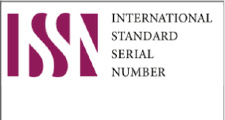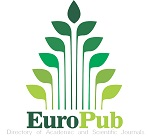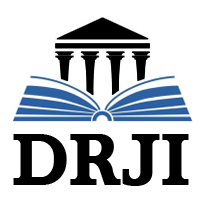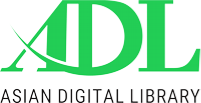The Need for Legal Framework for Muslim friendly Hospitality Services in Malaysia: An Analysis
Abstract
Malaysia is one of the first countries in the world to introduce the halal standards MS1500: 2004 in its vision to become the global halal hub. With the inception of halal standards in 2004, the practical guidelines for the food industry on the production, preparation, handling and storage of halal food are now available in a more structured and convenient form. Nonetheless, the advancement of lifestyle in today’s world, particularly the visionary generations, the increase in household economy, the advancement in technology, especially the use of artificial intelligent (AI) have somewhat influence the growth in global halal industry. Hence, the focus of halal industry and standards is no longer confined to food industry, pharmaceutical, cosmetics and personal care, logistic, and finance. The room of halal economy have expanded wide enough to cover lifestyle, tourism and hospitality. The increase of awareness in the importance of halal lifestyle among the Muslim populations have positively impacted the growth in the Muslim friendly hospitality services not just in Malaysia but also globally. This scenario had forced the service providers such as the tour package, hoteliers, food and beverage industry, health and wellness services, tourism excursion and logistic to provide services suitable to the need of Muslim tourist. In doing so, a comprehensive guidelines and legal framework is deemed necessary. This is important in order to ensure the Muslim friendly products and services offered are genuine and ultimately the welfare and interest of customers are well protected. Moreover, the guidelines and legal framework is necessary in order to avoid fraud, and misrepresentation amongst the service providers. In other words, only genuine Muslim friendly hospitality services are allowed to be promoted and advertised as such. A “self-claimed” Muslim friendly products and services should be prohibited. To date, Malaysia had published the Muslim friendly Standard MS 2610 which provides mainly a general guideline for halal tourism and Muslim friendly hospitality services in Malaysia. Nonetheless, the Malaysia Standard (MS) 2610 is not adequate to overcome legal challenges that pose impediments to further promoting Muslim friendly hospitality Services in Malaysia. It is strongly perceived that appropriate legal provisions are needed to back up the existing Malaysian Standard (MS) 2610. This study which is doctrinal in nature, analyses the existing legal framework of the Tourism Industry Act 1972 in Malaysia. Despite the promising demand for Muslim friendly hospitality services, there are challenges in promoting this special segment of the industry to everyone. Uncertainty regarding the correct term to portray Muslim friendly Hospitality Services, various self-declared versions of Muslim Friendly hospitality services, lack of standardisation of Shariah principles in tourism hospitality services, the inadequacy of legal regulatory framework, and the non-existence of Muslim friendly certification body will subsequently hamper the growth of Muslim friendly hospitality services in Malaysia. The study attempts to discuss these aspects and provides some suggestions to strengthen the position of Malaysia as the world best Muslim friendly destination as well as to provide protection to the end user.
Downloads
References
Ayob, H., Amin, N., & Ramli, N. (2016). Consumer protection in Muslim friendly travel agencies services. International Language and Tourism Conference 2016 (ILTC 2016), 21st-22nd Jan. 2016, Kuala Lumpur. Retrieved from http://irep.iium.edu.my/id/eprint/49327
Crescentrating. (2016). Defining what is Halal Tourism or Halal Travel: An introduction. Retrieved from https://www.crescentrating.com/magazine/muslim-travel/3852/defining-what-is-halal-travel-or-muslim-friendly-tourism.html
Halal Weekly. (2021, May 10). Understanding Muslim-friendly tourism. The Jakarta Post. Retrieved from https://www.halalweekly.com/2021/05/10/understanding-muslim-friendly-tourism/
Islamic Tourism Centre (ITC). (2024). Malaysia retains top spot as leading destination for Muslim travellers in GMTI 2024 report. Retrieved from https://itc.gov.my/malaysia-retains-top-spot-as-leading-destination-for-muslim-travellers-in-gmti-2024-report-2/
Islamic Tourism Centre (ITC). (2024). Malaysia retains top spot as leading destination for Muslim travellers in GMTI 2024 report. Retrieved June 5, 2024, from https://itc.gov.my/malaysia-retains-top-spot-as-leading-destination-for-muslim-travellers-in-gmti-2024-report-2/
Jakarta Post. (2021, May 10). Understanding Muslim-friendly tourism. Retrieved June 5, 2024, from https://www.halalweekly.com/2021/05/10/understanding-muslim-friendly-tourism/
Malaysian Standard (MS) 2610. (2015). Muslim friendly hospitality services: Requirements. Department of Standard Malaysia (DSM).
Statista Research Department. (2024, April 25). Tourist arrivals in Malaysia. Retrieved from https://www.statista.com/statistics/1004711/tourist-arrivals-malaysia/
Tourism Industry Act 1972 (Malaysia).






















